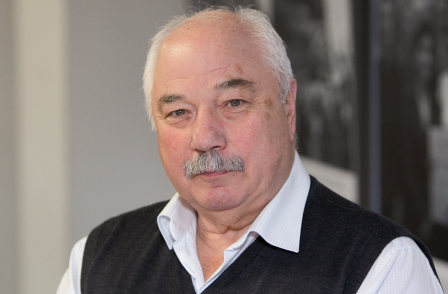
One of the NUJ’s most experienced officials, deputy general secretary Barry Fitzpatrick, is stepping down at the end of this year – two years into his five-year term.
Fitzpatrick is not taking redundancy or any pay-off and told Press Gazette he was leaving for personal reasons.
The union has yet to reveal whether or not there will be an election for the vacant deputy general secretary position. A spokeswoman said that the position itself is being reviewed by the union finance committee which will report back to the National Executive Council in February.
NUJ general secretary Michelle Stanistreet said: “Barry will be missed for the negotiating expertise he deployed in the newspaper and agency sectors during a period of unprecedented change and challenges.”
Fitzpatrick started his union career at the Sunday Times in 1968 where he was Father of the Chapel of the white collar section, which comprised some 800 people. He was working in the personnel department but took up his union post as a full-time role.
He was involved in the dispute in 1978 when Marmaduke Hussey, managing director of Times Newspapers, shut the titles down for a year.
“It was a lock-out. I led the union group that opposed it and when that dispute ended everyone got their jobs back and we secured the terms and conditions for the move from hot metal to computer typesetting.”
Fitzpatrick moved to an elected position with printing industry union SOGAT in 1982 and recalled manning the picket lines during the famous dispute of 1986 when Rupert Murdoch moved his titles from Fleet Street to Wapping in a union-busting move to impose new technology.
Murdoch has said his move to Wapping paved the way for a golden era of profitability for Fleet Street which lasted for some 20 years.
Asked about how he sees the move now, Fitzpatrick says: “There’s no doubt he transformed the profitability of News International – but at what price did he do that?
“Although at the time it was portrayed as a wonderful thing for journalism, we’ve all seen what that ultimately led to with what is going on at the moment in the courts.
“We had a 30-year domination of national newspapers by Murdoch.”
Fitzpatrick noted also that up until the closure of the News of the World, Murdoch maintained the NUJ-negotiated terms and conditions for journalists on his titles – possibly as a way of helping to ensure the union did not again establish a foothold at News International.
Asked what it was like to negotiate with notorious former Mirror owner Robert Maxwell he said: “He was just one of those people who permanently moved the goalposts and whose word was completely worthless. It was one of the greatest tragedies that he managed to own the Daily Mirror.”
In more recent years Fitzpatrick has had what he called a “robust” but “respectful” relationship with Express Newspapers owner Richard Desmond.
Last October, after seven months of negotiations, Fitzpatrick helped ensure that 70 planned job cuts on the Express titles were reduced to 40 voluntary redundancies. Earlier this year Fitzpatrick led negotiations on a deal which saw 100 planned editorial redundancies at Guardian News and Media reduced to 58 voluntary exits.
Fitzpatrick has been with the NUJ as national newspapers organiser for 12 years and joined the union at the start of a wave of new recognition deals at national and regional newspapers made possible by Labour's Fairness at Work legislation of 1999.
He said: “The NUJ probably benefited more than any other union and in my first two or three years in office we had more than 100 new recognition agreements.”
The most notable of these was the Daily Telegraph in 2002. Despite strong opposition and lobbying from Telegraph management, the company was forced to recognise the NUJ as the official editorial union after more than 50 per cent of journalists voted in favour.
Long-standing NUJ activist Chris Wheal said: “More than anybody else Barry Fitzpatrick negotiated training packages when people were made redundant.
“He was someone who was very much into what unions should be about, getting the best benefits for their members, rather than the politics which some people are more into.
“When I heard he was leaving I thought that there is something not quite right at the top there.”
Email pged@pressgazette.co.uk to point out mistakes, provide story tips or send in a letter for publication on our "Letters Page" blog
